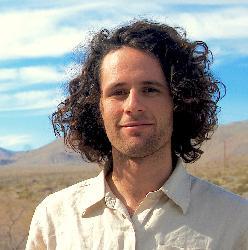Psychology Faculty

- Pronouns he, him, his, his, himself
- Title
- Assistant Professor
- Division Social Sciences Division
- Department
- Psychology Department
- Phone 831-459-4630
- Website
- Office Location
- Social Sciences 2, Room 367
- Office Hours (Spring 2024) Weds., 1pm - 2pm; Social Sciences 2 Rm 367; or by appointment
- Mail Stop Psychology Faculty Services
- Faculty Areas of Expertise Cognition, Neuroscience, Psychology, Computational Modeling
- Courses Cognitive Neuroscience, Cognition: Fundamental Theories, The Neuroscience of Consciousness (grad)
Summary of Expertise
Visual perception and consciousness; The neural correlates of consciousness; metacognition and confidence; perceptual decision making; computational models of perception; working memory; attention and expectations in perception; electrophysiological methods; neural oscillations; machine learning.
Research Interests
Our lab uses psychophysics and computational modeling in concert with tools from cognitive neuroscience to measure and manipulate brain activity in humans in an effort to understand the neural basis of visual awareness, attention, perceptual decision making, and working memory. We have a particular focus on the role of oscillatory brain dynamics in shaping perceptual processing and we have evidence that oscillatory mechanisms could underly the ability of "top-down" factors, such as spatial/temporal attention and perceptual expectations, to modulate perceptual processing.
We also use computational modeling to understand what information is used to compute perceptual decisions and our subjective sense of confidence in those decisions. Our research has uncovered that our sense of confidence in our decisions (e.g., how likely we think we are to be correct) does not rely on the exact same information as the decision itself. This could mean that our subjective impression of what we see is distinct from the visual information that we are capable of responding to. We think this has implications for understanding the neural basis of consciousness and the role that consciousness plays in our behavior, cognition, and beliefs.
Biography, Education and Training
Ph.D. in Psychology, University of Wisconsin-Madison
B.A. in Psychology, San Francisco State University
Selected Publications
- Samaha, J., Bauer, P., Cimaroli, S., & Postle, B. R. (2015). Top-down control of the phase of alpha-band oscillations as a mechanism for temporal prediction. Proceedings of the National Academy of Sciences, 112(27), 8439–8444. https://doi.org/10.1073/pnas.1503686112
- Samaha, J., Iemi, L., & Postle, B. R. (2017). Prestimulus alpha-band power biases visual discrimination confidence, but not accuracy. Consciousness and Cognition, 54, 47–55. https://doi.org/10.1016/j.concog.2017.02.005
- Samaha, J., & Postle, B. R. (2015). The Speed of Alpha-Band Oscillations Predicts the Temporal Resolution of Visual Perception. Current Biology, 25(22), 2985–2990. https://doi.org/10.1016/j.cub.2015.10.007
- Samaha, J., Sprague, T. C., & Postle, B. R. (2016). Decoding and Reconstructing the Focus of Spatial Attention from the Topography of Alpha-band Oscillations. Journal of Cognitive Neuroscience, 28(8), 1090–1097. https://doi.org/10.1162/jocn_a_00955
- Wutz, A., Melcher, D., & Samaha, J. (2018). Frequency modulation of neural oscillations according to visual task demands. Proceedings of the National Academy of Sciences, 201713318. https://doi.org/10.1073/pnas.1713318115
